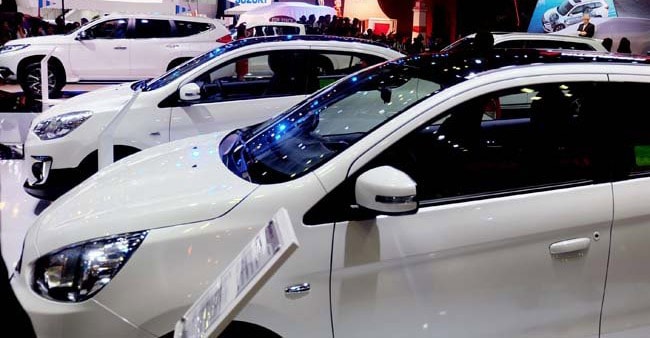Buying a car for Tet: Beware of dealer's tricks
The psychology of buying cars for Tet and the reduction of import tax on cars in the ASEAN region from 30% to 0% from January 1, 2018 has made the car market bustling in the days leading up to the Lunar New Year 2018. However, risks also appear for car buyers.
To protect the legitimate rights of consumers, the Department of Competition and Consumer Protection (Ministry of Industry and Trade) has just issued recommendations on some important matters to note regarding car deposits and cases of car price changes at the time of transaction.
The Competition and Consumer Protection Department said: Normally, when the car is not available at the dealer, the dealer will ask the consumer to deposit a sum of money to confirm the purchase of the car. The deposit, according to the 2015 Civil Code, is to "ensure the conclusion or performance of the contract" (Article 328 - 2015 Civil Code).
However, in reality, in recent times, there have been incidents where there are no cars to deliver according to the signed contract, and the dealer resolves the situation by simply returning the deposit to the consumer.

According to the provisions of Article 328 of the 2015 Civil Code: “If the depositor refuses to enter into or perform the civil contract, the deposit property belongs to the deposit recipient; if the deposit recipient refuses to enter into or perform the civil contract, it must return the deposit property and an amount of money equivalent to the value of the deposit property to the depositor, unless otherwise agreed”.
Thus, during the process of depositing and signing a deposit contract, consumers should carefully read the provisions in the deposit agreement between the two parties.
In the absence of any other agreement, where the dealer has received a deposit but has no vehicle to sell to the consumer, the dealer must return the deposit and an amount equivalent to the amount deposited by the consumer.
“For example, in the case where a consumer deposits 100 million VND to buy a car but the dealer does not properly execute the transaction, the dealer must pay the consumer the equivalent of 200 million VND,” said the Department of Competition and Consumer Protection.
In addition, in recent times, many consumers have reported having to buy a car at a price higher than the price specified in the contract when making a deposit. In fact, when encountering the above situations, consumers often follow the dealer's instructions such as: writing a voluntary withdrawal of the deposit or accepting to buy a car at a price higher than the price specified in the contract.
“However, by doing so, consumers have accepted that agents violate their legitimate rights,” the Department of Competition and Consumer Protection emphasized.
According to Article 16 of the Law on Consumer Protection, enterprises are not allowed to stipulate in standard contracts and general transaction conditions when entering into contracts with consumers the following provisions: Allowing organizations and individuals trading in goods and services to regulate or change prices at the time of delivery of goods and provision of services.
Therefore, before signing a contract with a dealer, consumers need to carefully read the terms of the contract. If they discover terms that allow price changes at the time of vehicle delivery, consumers can request the dealer to remove these terms from the contract.
In addition, the Department of Competition and Consumer Protection has recently received many complaints from consumers about car dealers delivering cars lacking spare parts and accessories such as spare tires, tool boxes, user manuals, etc. Therefore, before receiving the car, consumers must carefully check the car's accessories that are publicly announced on the car manufacturers' information pages.

